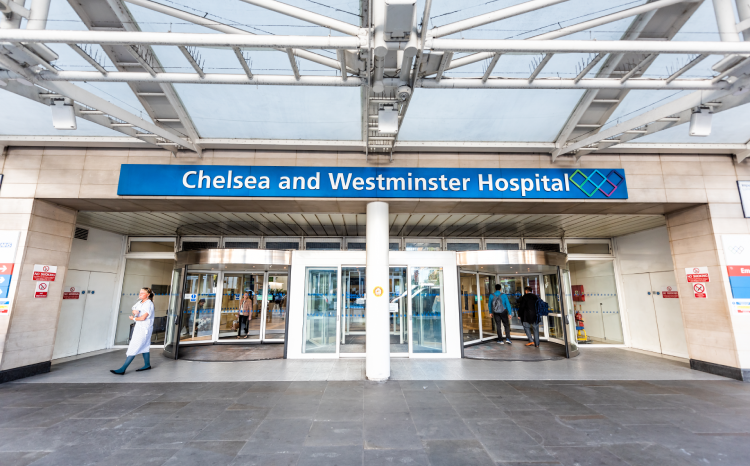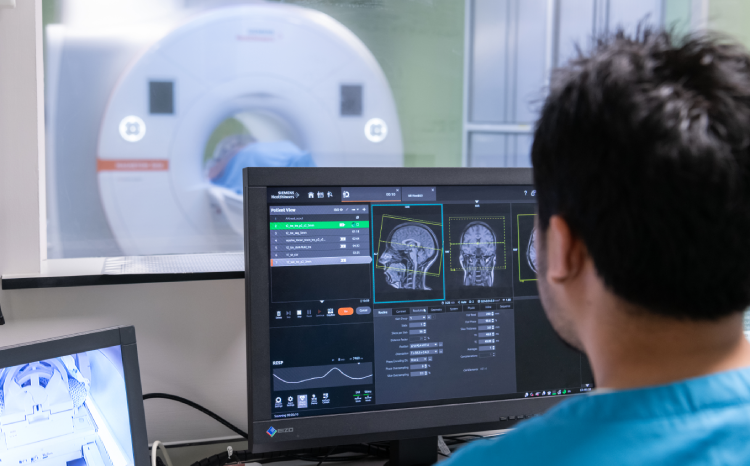West Middlesex hospital launches prescribing tool for paediatrics
- 15 April 2025

- West Middlesex University Hospital has deployed a clinical decision support tool with the aim of reducing prescribing errors for children
- The Dosium Touchdose solution calculates the right dosage of drugs for patients
- The launch on 2 April 2025 marks the completion of the final stage of rollout across the West London Children’s Healthcare partnership
West Middlesex University Hospital has deployed a clinical decision support tool with the aim of reducing prescribing errors for children.
The Dosium Touchdose solution went live at the hospital on 2 April 2025 and clinicians are being encouraged to use it for all paediatric prescriptions in the emergency department and general medicine department.
The tool automatically calculates the right dosage of drugs for patients by taking information from the electronic health records, local guidelines, and a live integration with the British National Formulary for Children.
Professor Ian Maconochie, chief clinical information officer at West London Children’s Healthcare and consultant in children’s emergency medicine, said: “Not only is this an important milestone in our partnership with Dosium, bringing a significant potential improvement in safety to all our patients, but having a single, evidence-based approach to dosing means clinicians can prescribe with greater confidence.
“It will reduce their cognitive burden and risk of error in high-pressure environments.
“I have been impressed with the instant impact it has had in other parts of the trust and use it in my own work, too.”
The launch at West Middlesex University Hospital marks the completion of the final stage of rollout across the West London Children’s Healthcare (WLCH) partnership, which cares for 150,000 children a year across Chelsea and Westminster Hospital NHS Foundation Trust and Imperial College Healthcare NHS Trust.
It follows go-lives at the emergency departments and general paediatrics departments at Chelsea and Westminster Hospital in March 2025, and St Mary’s Hospital in August 2024.
Clinicians using Touchdose for paediatric prescribing have been shown to be an average of 83% less likely to make a prescribing error than those not using the tool – with rates dropping from 7.1% to 1.2% since the launch at St Mary’s Hospital.
There are 237 million medication errors every year in England, of which around a third (66 million) are ‘clinically significant,’ meaning they cause harm or require some kind of further intervention, according to national estimates, published in the BMJ.
Cases of prescribing error are cited as a contributing factor of more than 1,700 deaths in the NHS each year and children are particularly vulnerable because of their smaller size than adults, which means that margins for error are slim and small mistakes can have a significant impact.
Nicholas Appelbaum, chief executive and cofounder of Dosium, said: “WLCH has taken an important step in improving prescribing safety. This kind of proactive, joined-up approach will help reduce errors and avoid harm before it happens.
“But it’s also about improving consistency. Children treated across all WLCH sites will benefit from the same high standard of care, wherever they are seen.
“It’s been a privilege to work with the team at WLCH. Their clear focus on patient safety and collaboration across organisations has made this possible.”
Meanwhile, in March 2025 Birmingham Community Healthcare NHS Foundation Trust began a two-year pilot of the CLEO SOLO electronic prescribing solution in its children’s services, with the aim of addressing the challenges associated with manual prescribing.





